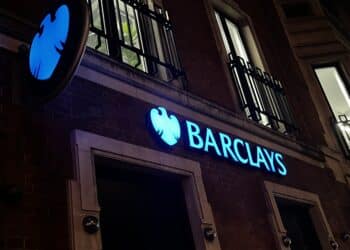Acquisition cost vs Processing cost : strategies for payment startups?
With the cambrian explosion of payment startups, clones tackling mobile, NFC, QR codes, cryptography etc. it is quite a confusing market, especially when looking for the startups and companies that will shape the market. One possible framework to look at payment startups is to focus on the 2 main competitive forces in the market in terms of merchant services.
– Acquisition cost
Because in our current card dominated world there is a relative equilibrium on the payment processing costs (crumbling under government push?), the main (only(?)) way to compete is to lower acquisition costs. In my view any price premium will be driven down by market forces (relative to the risk component included). In this perspective the main trend in physical and digital world is self service. API driven payment companies (Braintree, Stripe for example) have lowered the acquisition cost of merchants by reducing significantly integration costs and in Stripe cases, documentation on the merchant side by accepting more risk internally.
The existing sales, software integrator model has difficulties competing with these new players. In a typical case of disruptive innovation use case, they are picking up first the lower part of the market, high risk merchants and startups. But they are doing it at a pivotal moment.
It is important to look at there merchant client base in the perspective of the ongoing digital transformation of all industries. In fact their merchant base needs to be looked at as a venture portfolio. Only a couple of winners make most of the gain. But if you are processing payments, it is quite phenomenal to have client with a 10% weekly growth rate. Paul Graham has a very good post on what growth means in the startup world (http://www.paulgraham.com/growth.html). Think what Airbnb meant to Braintree’s growth. There is also some network effect as winner attract winners and good reputation in the startup world matter a lot as referral. (note: I am being somewhat of an absolutist here, user support has also been one of Braintree’s forte).
– Payment processing cost
This is the red herring of the payment world. In that perspective startups like Dwolla, Technology protocols such as Bitcoin, Supermerchants partnerships such as MCX are the same. They all target much lower cost of transaction vs the credit card networks, in most cases a few cents vs a fixed percentage.
This is different from arbitrage business model strategies such as Paypal’s where you find a way to reduce the cost of some of your transactions which allows you: to have little/no margins on others, increase your overall margin.
However so far, the value proposition of lower transaction costs has not proven enough for massive merchants acquisition. Obviously this is because changing the rails of payment means changing the consumer behaviour at point of sales, getting him a new wallet or payment mean to complete the transaction. This is a long haul process .. and that does not prevent to have a successful merchant acquisition strategy beyond cheaper processing. Additionally, moving risk around does not make for a cheaper proposition overall. No chargeback does not mean an insurance cost component will not be added in some forms to a transaction.
I think for the rail changing players, a combination with the first strategy will be necessary to grow. Grow on the existing rails and switch the population to new rails, while committing to passing the price difference down to the merchant. Or focus on a market where cards have much less penetration.
What about marketing tools, coupons etc ? Aren’t they value ad services for the merchants?
So far we have not seen much success on this front and I think this is because using transactional data has put too much emphasis on discounts, coupons, instant buy strategies. Mobile, connected devices will not make people more discount, coupons push marketing addicts than television and comfy living room has made QVC shopping the most popular way to shop. Impulse buying, coupons are an important part of advertising/marketing but is not the solution to everything. Especially when you have Amazon in the picture. In the end most merchants prefer to sell at full price vs discounted price.
On the same idea, selling CRM tool to small merchants is somewhat of a contradiction. Most small shops, if they are successful don’t need to know who their best customers are, they already do. They know what they buy, like etc. Even a giant like Starbucks is successful at it, any morning regulars is known by name and type of coffee. There is a potential for marginal improvement (still a good thing) but no revolution /”I cant wait to get this” factor.
However they are other services that can be tagged to payment and in my view bring more value to merchants (think Square business dashboard as a start)…
The payment startup market is crowded and only a few will survive. The coolness factor of mobile, code will not be enough to succeed. On the startup front, it seems to me the merchants will make the winners, in the same way as a few startups tend to make a whole portfolio successful.











